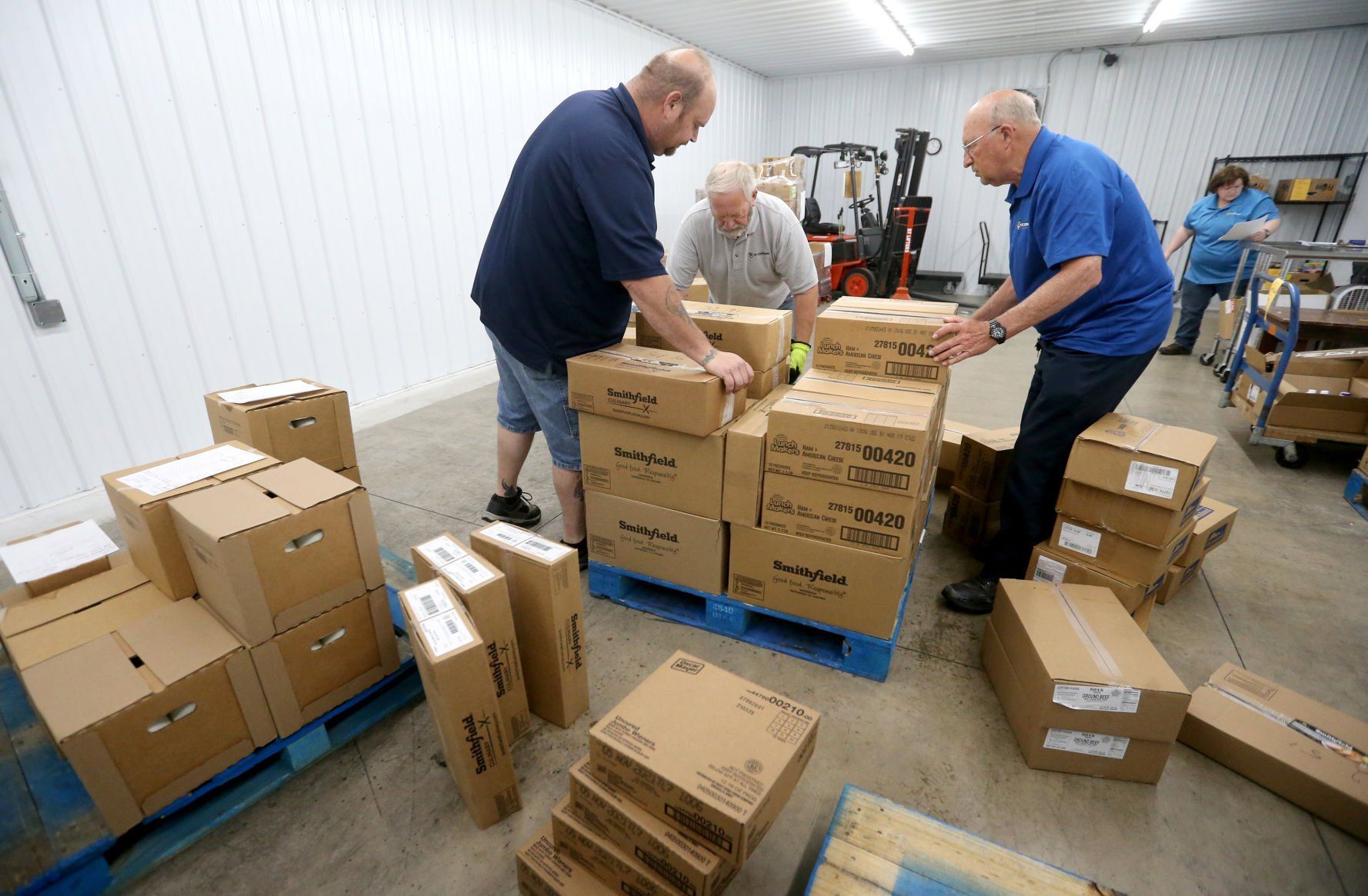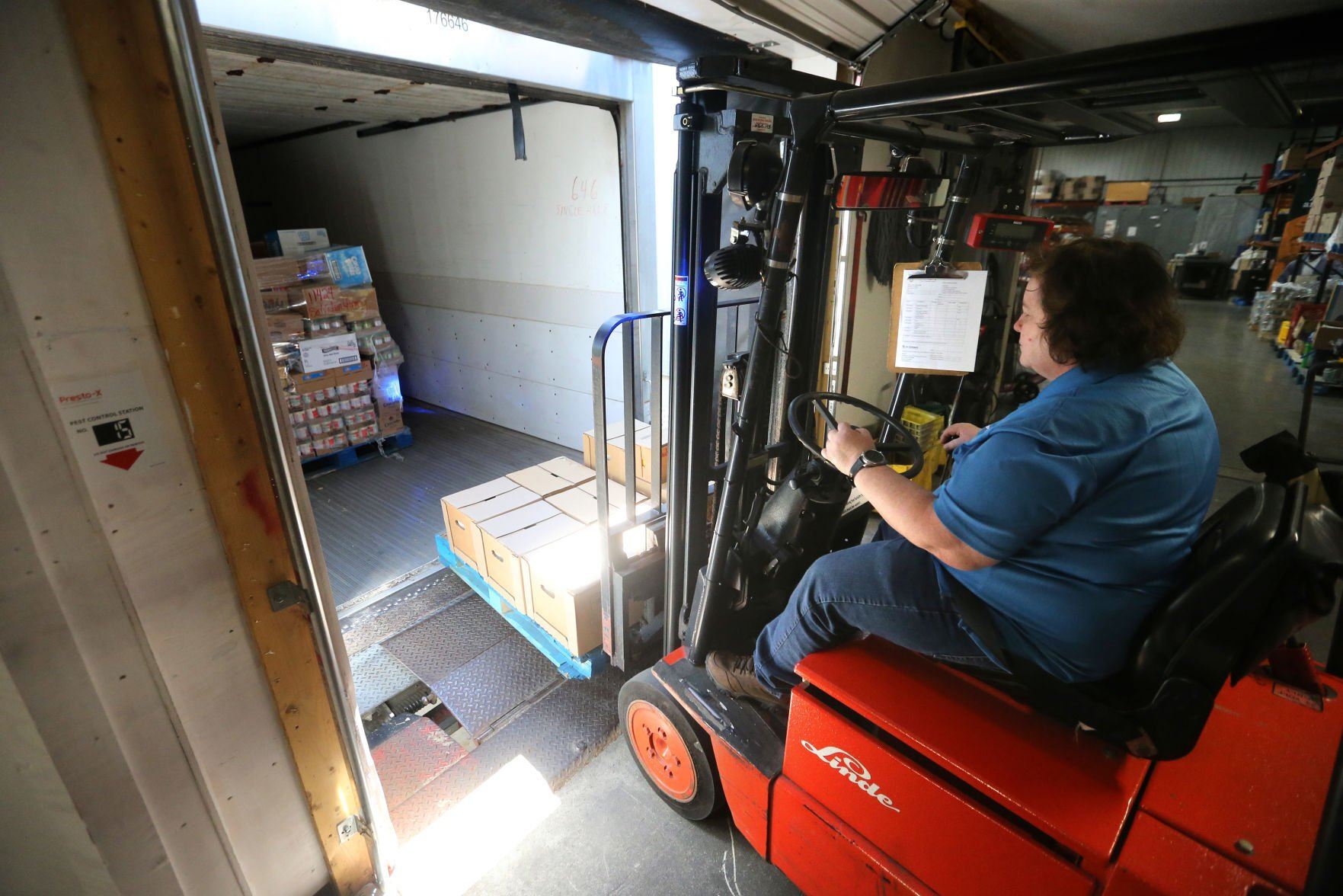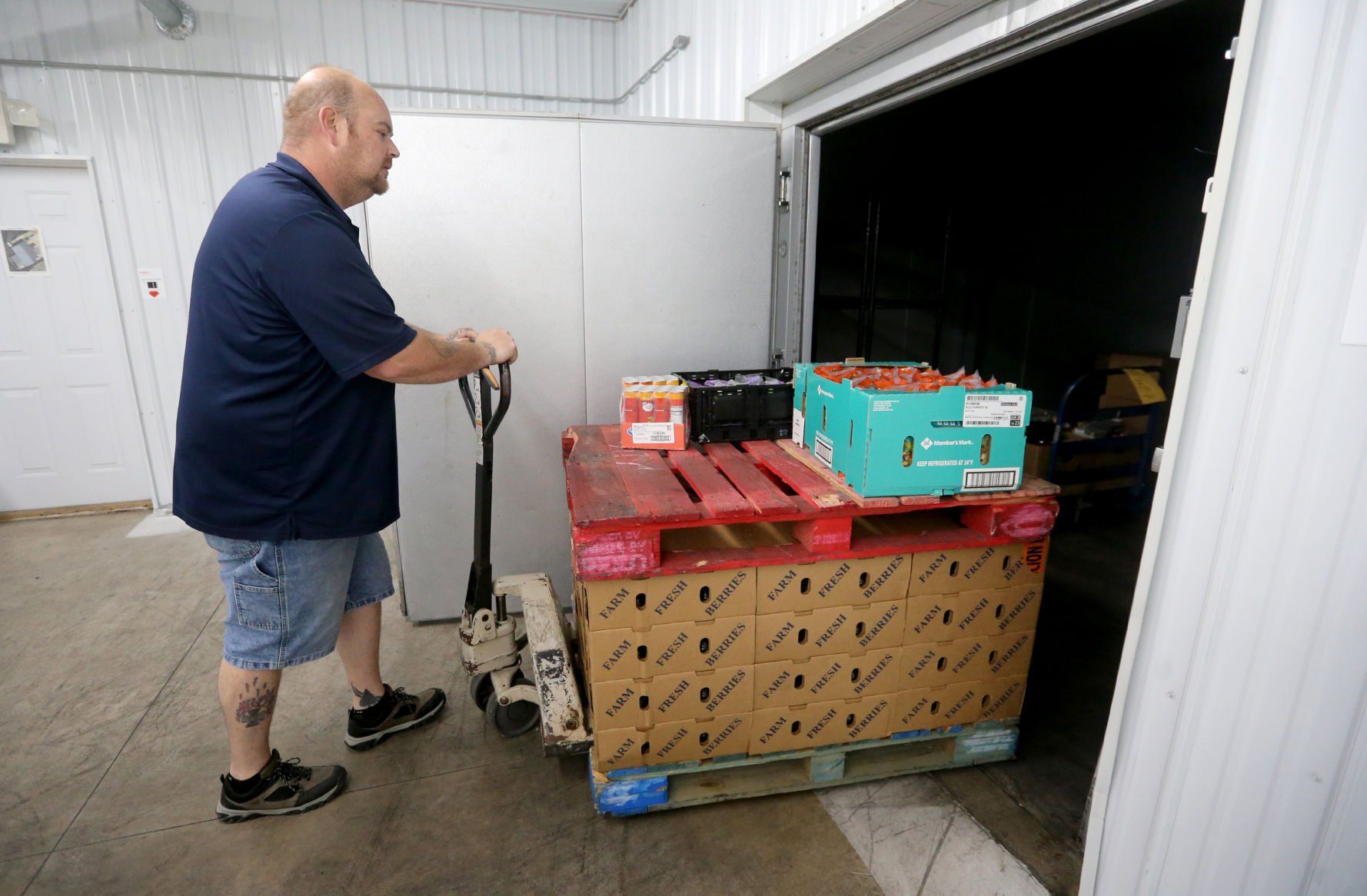Area food pantries are feeling the strain of both rising community needs and increasing costs to provide services.
As of Tuesday, the national inflation rate was at about 8.6%, a 40-year high, with average grocery store prices up 12% from one year earlier, according to the U.S. Bureau of Labor Statistics.
Leaders of local food pantries and organizations that provide free meals said the increased cost of living has driven more people to use their services than they saw even during the COVID-19 pandemic.
Kathy Hutton is the site director at Dubuque’s St. Stephen’s Food Bank, a branch of River Bend Food Bank. She said she recently spoke to a married mother of six who had overstretched her household food budget for the first time due to high prices.
“We’re having calls all the time from people who have never had to use a food pantry before and don’t know the process,” she said.
Hutton said the number of people turning to St. Stephen’s for food has increased by 15% in recent months.
Tom Townsend manages Dubuque Area Labor Harvest, which provides free meals most Saturdays and grocery deliveries twice per month. He said need has jumped sharply for the group’s services, which has put a strain on the volunteers that provide them.
“We had settled in where we were doing about 50 deliveries every two weeks for about a year,” he said. “The last few months, it’s been closer to 80 to 100. When it gets up where it is, we’re struggling with the number of volunteers for deliveries and the amount of time it takes to get them ready.”
Ben Anderson helps run East Dubuque (Ill.) Food Pantry. He said the pantry has served about 60 families per week recently, an increase of around 20%. The pantry has been able to handle that so far, but he said he worries about how sustainable that is.
“Right at this time, we are in fairly good shape financially and with food,” he said. “There again, that’s something that is subject to monthly changes.”
Many food pantries and free food services in the area use the Davenport-based River Bend Food Bank. River Bend Director of Marketing and Communications Liz Dierolf said the economy has stressed the food bank’s system as well.
“When inflation comes around and you see bare shelves at the grocery store, that means those distributors and grocers don’t have those items to send to us either,” she said. “Anything extra they have in their stores, we’re seeing them repurposing, redistributing in different ways, cutting back on what they’re ordering to try and match what consumers are purchasing. So, we are seeing a decrease in donations from our larger corporate partners.”
Dierolf said the federal Emergency Food Assistance Program, one of the biggest sources of River Bend’s food and funding, also has been overstressed lately.
“We have had about 15% or 17% of our orders canceled through that program, which means they didn’t have the food supply that we asked for or they weren’t able to get it in the time frame when we needed it,” she said. “That puts a dent in what we’re getting at a discount or free, which means we have to purchase our food.”
Dierolf said these factors make River Bend more susceptible to a still-fragile supply chain and incidental problems such as a recent Jif peanut butter recall.
The problems have hit River Bend’s food reserves.
“We normally have about 500,000 pounds to 1 million pounds of food in our 60,000-(square)-foot warehouse at any given time,” she said. “Right now, it’s odd and eerie. There are quite a few empty racks in our warehouse right now.”
Organizations reported different areas of need so they can weather the current storm.
Dierolf said River Bend mostly is in need of money because it provides food to so many other services.
“Every dollar we receive creates about five meals,” she said. “Since we’re having to purchase more food, monetary donations are really, really helpful.”
But Dierolf also asked that companies and institutions offer what food they can spare, too.
“If you have food at home that you know you won’t eat or which has reached what we call the ‘donate date’ — because ‘expiration dates’ other than on infant formula are actually best-by dates and mean the producer thinks it will taste great by that date or wants you to eat or drink it so you’ll buy it again, unless it’s bulging or rusting or smells weird — it is perfectly safe, and we would love to get it to someone who could use it,” she said.
Local groups expressed a need for more volunteers.
Dawn Drake runs Ruby’s Pantry for Platteville (Wis.) United Methodist Church. She said it takes 80 volunteers to keep the pantry going, and finding those volunteers becomes difficult in the summer.
“During the school year, we have a number of students from (University of Wisconsin-Platteville), which helps,” she said.
Despite those challenges, leaders at area services said they had not run out of food and remain open, especially if they can find a little more help.




